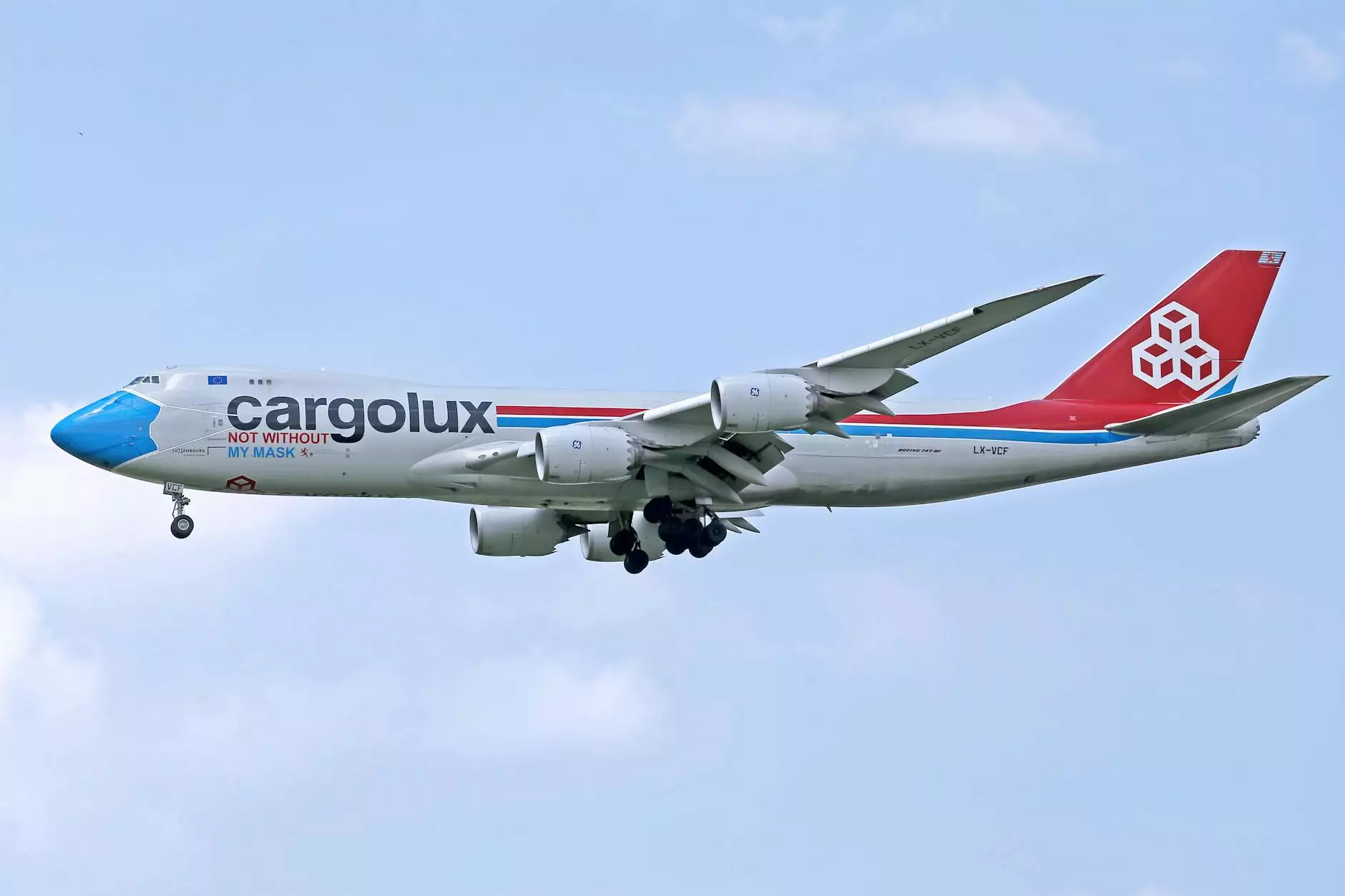Understanding **Air Cargo Costs**: A Comprehensive Guide

The global economy thrives on trade and logistics, and air cargo costs play a crucial role in determining how businesses manage their shipping needs. With the rapid growth of e-commerce and a surge in international trade, understanding the nuances of air cargo expenses has never been more important.
The Importance of Air Cargo in Modern Business
Air cargo transportation has transformed the way businesses operate. It offers numerous advantages including speed, reliability, and global reach. Companies can quickly move products across continents, ensuring timely delivery and enhancing customer satisfaction. However, the benefits of air cargo come at a price, making it essential for businesses to understand air cargo costs to make informed decisions.
Why Choose Air Cargo?
When considering transportation options, businesses often weigh the pros and cons of air freight against other methods, such as ocean freight or land transport. Below are some reasons why air cargo might be the best choice:
- Speed: Air freight is the fastest shipping method, significantly reducing transit times.
- Reliability: Airlines operate on strict schedules, often ensuring on-time delivery.
- Global Access: Air cargo provides access to remote and hard-to-reach destinations quickly.
- Safety and Security: Enhanced security measures are typically in place, reducing the risk of theft or damage.
Factors Influencing Air Cargo Costs
Understanding the air cargo costs involves examining various elements that contribute to pricing. Here are the key factors:
1. Weight and Dimensions
The weight and size of the shipment are fundamental determinants of air cargo costs. Airlines often charge based on the greater of:
- Actual Weight: The physical weight of the cargo.
- Volumetric Weight: A calculation based on the dimensions of the cargo, allowing for pricing of lightweight but large items.
Understanding how to calculate volumetric weight is essential for businesses looking to optimize shipping costs.
2. Distance and Destination
The distance between the origin and destination plays a significant role in determining costs. Longer distances typically incur higher fees. Additionally, specific destinations may have varying charges based on local regulations, taxes, and surcharges.
3. Type of Goods
Shipping hazardous materials, perishable items, or high-value goods typically incurs additional handling fees and special insurance coverage. As such, categorizing your goods correctly is vital for accurate cost assessment.
4. Seasonality
Demand for air cargo services fluctuates throughout the year, often peaking during holiday seasons. This seasonal variation can lead to price surges during high demand periods.
5. Fuel Costs
Fuel prices directly impact air cargo rates. As fuel prices rise or fall, you may notice corresponding changes in shipping costs, often reflected in surcharges.
Ways to Optimize Air Cargo Costs
While air cargo costs can be significant, there are several strategies businesses can implement to minimize expenses without compromising service quality:
1. Compare Rates
Utilizing logistics partners or freight forwarders can help you compare air freight rates from various carriers. This enables you to select the most cost-effective option for your shipping needs.
2. Consolidate Shipments
By combining multiple shipments into one, businesses can often reduce costs. Consolidation takes advantage of available space and may result in lower per-pound shipping expenses.
3. Leverage Technology
Investing in tracking and logistics software can help streamline your shipping processes. Technology can provide real-time updates, facilitate efficient inventory management, and ensure the best routing for your shipments.
4. Negotiate Contracts
If your business frequently uses air cargo services, negotiating long-term contracts with airlines can lead to significant discounts and favorable terms. Always seek to establish ongoing relationships with carriers for better pricing.
Evaluating Air Cargo Providers
Choosing the right air cargo provider is as critical as understanding air cargo costs. Evaluate potential partners based on several criteria:
- Reputation: Research customer reviews and ratings to gauge reliability and service quality.
- Network: Ensure the provider has a strong global network, with access to all necessary routes.
- Customer Service: Strong communication and support systems can make a significant difference in operational efficiency.
- Insurance Coverage: Assess what insurance options are available to protect your goods during transit.
The Future of Air Cargo
The evolution of technology and changing market demands are poised to impact air cargo costs significantly. Here’s what the future may hold:
1. Sustainable Practices
There is a growing emphasis on sustainability within the logistics industry. Airlines are beginning to adopt greener practices, which could change pricing structures as fuel efficiency improves.
2. Automation and Robotics
Advancements in automation and robotics in cargo handling may help reduce operational costs, potentially leading to lower air cargo rates over time.
3. Enhanced Tracking Technologies
With innovations in tracking technology, businesses will have better tools to manage their shipments while reducing loss and damage, further influencing the overall costs positively.
Conclusion
Understanding air cargo costs and the various factors influencing them is essential for modern businesses. By optimizing shipping strategies, choosing the right logistics partners, and looking ahead at innovative practices, companies can navigate the air freight landscape more effectively. As the world continues to interconnect through trade, being informed about these elements will not only help in managing expenses but also pave the way for more efficient operations.
For businesses striving to thrive in today's dynamic marketplace, a profound understanding of air cargo and its associated costs is a vital component of their success. At cargobooking.aero, we are committed to providing you with the resources and insights necessary to make informed shipping decisions and optimize your logistics strategies.









